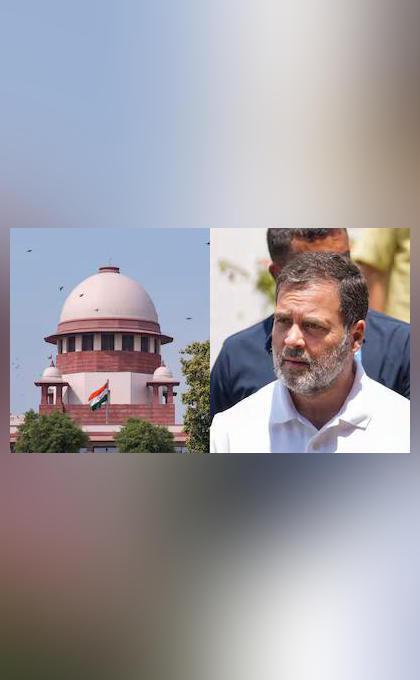
Why ask on social media & not in parliament: SC to Rahul on ‘land grab’ claim
The Supreme Court, on Monday, delivered a stern reprimand to Congress leader Rahul Gandhi over his claim that China had grabbed 2,000 square kilometers of Indian land. The court’s rebuke came while staying a defamation case against Rahul for his remarks about the Indian Army.
Rahul’s claim was made during a rally in 2020, where he alleged that China had occupied 2,000 square kilometers of Indian land. The remark sparked controversy and led to a series of legal cases against him. The defamation case was filed by a lawyer, who claimed that Rahul’s remarks had damaged his reputation.
However, the Supreme Court, while staying the defamation case, took Rahul to task over his claim. The court asked Rahul how he knew that China had occupied 2,000 square kilometers of Indian land. The court’s skepticism was evident in its tone, which was stern and critical.
The court’s rebuke was not limited to Rahul’s claim alone. The court also questioned why Rahul chose to make such serious allegations on social media rather than in Parliament. The court’s observation was that Rahul’s claim was a serious one, and it was necessary to substantiate it with evidence. The court suggested that Rahul should have used his platform in Parliament to raise the issue, rather than making unverified claims on social media.
The court’s criticism of Rahul’s actions is not without merit. Social media platforms are not always the most appropriate place to raise serious allegations. Social media is a medium that is prone to misinformation and disinformation, and it is often difficult to verify the accuracy of information shared on these platforms.
In contrast, Parliament is a formal institution that provides a platform for lawmakers to raise serious issues and engage in debates. Parliament is a place where lawmakers can present evidence and arguments to support their claims, and it is a place where they can be held accountable for their actions.
Rahul’s decision to make his claim on social media rather than in Parliament reflects a larger problem in Indian politics. Many politicians today prefer to use social media to make announcements and raise issues, rather than using more formal platforms like Parliament.
This trend is problematic for several reasons. Firstly, social media is not always an accurate reflection of reality. Information shared on social media can be easily manipulated and distorted, and it is often difficult to verify the accuracy of information shared on these platforms.
Secondly, social media is not a suitable platform for serious debates and discussions. Social media is a medium that is designed for quick and easy consumption, and it is not well-suited for in-depth discussions and debates.
Thirdly, social media is not a substitute for formal institutions like Parliament. Parliament is a formal institution that provides a platform for lawmakers to engage in debates and discussions, and it is a place where they can be held accountable for their actions.
The Supreme Court’s rebuke of Rahul Gandhi is a reminder that politicians have a responsibility to use formal institutions like Parliament to raise serious issues and engage in debates. The court’s criticism of Rahul’s actions is not an attack on his freedom of speech, but rather a reminder that politicians have a responsibility to use their platforms responsibly.
In conclusion, the Supreme Court’s rebuke of Rahul Gandhi over his claim that China had grabbed 2,000 square kilometers of Indian land is a reminder that politicians have a responsibility to use formal institutions like Parliament to raise serious issues and engage in debates. The court’s criticism of Rahul’s actions is a reminder that social media is not always an accurate reflection of reality, and it is not a suitable platform for serious debates and discussions.






